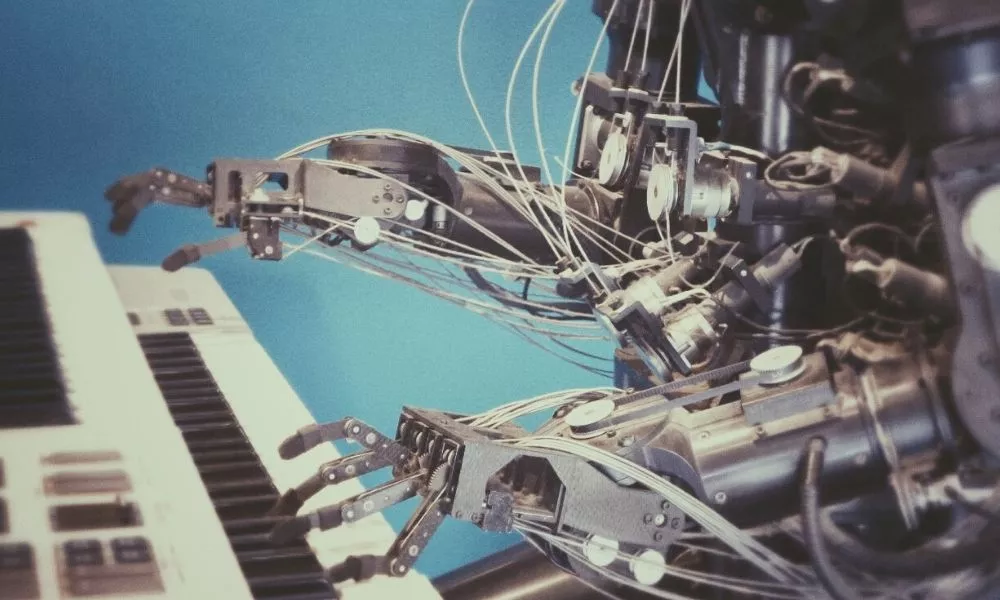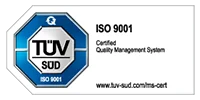- BlogTechnology The Future of Automation – Robotic Process Automation




The Future of Automation – Robotic Process Automation

The Future of Automation – Robotic Process Automation
The Automation industry continues to develop/expand at a rapid pace, the possibilities surrounding the future impact of automation are endless. Think about it, if someone would have told you 20 years ago that a robot will be able to hover & mop your home without you having to leave your sofa, you will have probably thought that they had lost their mind. Robotic Process Automation can be seen as a prime example of how the development of one powerful piece of software can change the way a business works. Join as we take a deep dive into the current state of process automation and make some predictions for the future, paying particular focus to RPA.
A Look Back at Process Automation
Process automation is by no means a new concept. It has a long-standing history within the technology sector. Many of today’s technology/ software developments would not have been possible, or as effective without process automation. If you have or are working in a business environment you will have come into contact with Process Automation. The development of process automation untimely lead to the development of Robotic Process Automation and Future of Automation.
RPA consists of a combination of software that has been brought together, under one roof to develop RPA. An example of this is Machine Learning, the exploration of Machine Learning and awareness of its limitations lead to the development of new software, such as NPL.
Although RPA technologies have been around since the late 90’s/early 20s, it was not deployed into businesses until 2015. Since then the RPA market value has seen a rapid increase, in 2018 the market grew by 60%, and is expected to grow by 50% in 2021, to reach the value of £2.3 billion.
Current Business Benefits of RPA
RPA can benefit every business differently, depending on the way that said business implements the technology.
- Reduced costs – RPA means repetitive business tasks such as data entry are automated, as a result, your business will require fewer human resources to complete tasks.
- Improved business productivity – Using RPA within businesses can reduce the risk of human error within certain processes, to help ensure maximum productivity. For example RPA can reduce the amount of errors in repetitive data entry tasks.
- Improved Customer Experience – Using RPA technology means that your teams will be able to spend more time focusing on activities that will enhance your customer’s experience & satisfaction.
- RPA is a software that is likely to be run externally to your other IT software, thus making it less disruptive than over software applications. In addition, once the relevant processes are in place RPA software is relatively easy to maintain.
One of the key reasons the RPA industry is expected to grow significantly is because of the ongoing analysis & improvements to the technology. Because like any piece of tech RPA has its limitations to its functionality, but the ability to understand and improve on those limitations set it apart from the rest. We have used the notion of continuous improvement to make 4 RPA predictions for the future.
Future Predictions for RPA
Kirkwood (2019) claimed that Robotic Process Automation will become the YouTube of automation. Thus, suggesting that RPA will become the dominant tool used by businesses for any type of process/or robotic automation.
Here are some of Incepteo’s RPA predictions:
- RPA will become a worldwide trend. The current RPA industry is varied, countries such as China have adopted it widely, however other counties such as Italy at are yet to fully adopt RPA. We predict that over the next 5 – 7 years RPA will grow into a global tech phonomime, with sectors such as banking & consumer goods benefiting significantly from its implementation. For example, banking organisations will be able to use RPA to gather and pull through customer information.
- Although the deployment of RPA may see a decline in some career paths, we predict that RPA will open new career paths & help old ones to flourish. For example, business analysis & developer roles will see significant growth in accordance with the rise of RPA, as businesses will need software focused business analyst to continually review the systems & developers to improve upon the software.
- We predict that an exceeding number of businesses will use RPA software for cybersecurity purposes, as it will help them to identify & eliminate cyber threats quickly.
- Departments/functions will be able to enhance their impact & level of activity due to RPA. For example, RPA will help sales focused teams extract & report information about leads, as in the future RPA will be able to extract information about leads from sources such as Lead Forensic, categories them, and then send reports based on the information.
It’s important to note that these predictions are just a small snippet of the future of RPA. Due to the broad scope and potential of RPA, we cannot begin to imagine the impact that RPA will have within society, as new developments to the software a made every day, because remember “what’s now provided was once only imagined”.
Preparing for the takeover:
As mentioned previously the future of RPA is unknown, which for many may seem exciting and scary at the same time. So here are our top tips to help you prepare for the rise, and potential takeover of RPA.
- Start planning and thinking about activities/ procedures in your business that will benefit the from being automated using RPA software. You should consider your current costs, speed, and volume of said activity.
- The key to the successful implementation of RPA software, like anything is your team’s ability/willingness to learn about the software, and improving your skillset.
Incepteo are proven process automation providers, using social science & behavior economic we work with businesses to help them embrace Robotic Process Automation.
Share this:
Recent Posts
- Top 10 Benefits of Using AI for eCommerce Business Growth
- How Incepteo Excels in AI Consulting for Small Businesses
- Top 10 Challenges AI Fintech Companies Face and How to Overcome Them
- How Offshore Mobile Development Reduces Operational Complexity for SMEs
- Why Incepteo is the Leading Software Development Company for Startups
By Sector

How Can Incepteo Help You?


Quick Links
AI SERVICES
2024 © All rights reserved by Incepteo